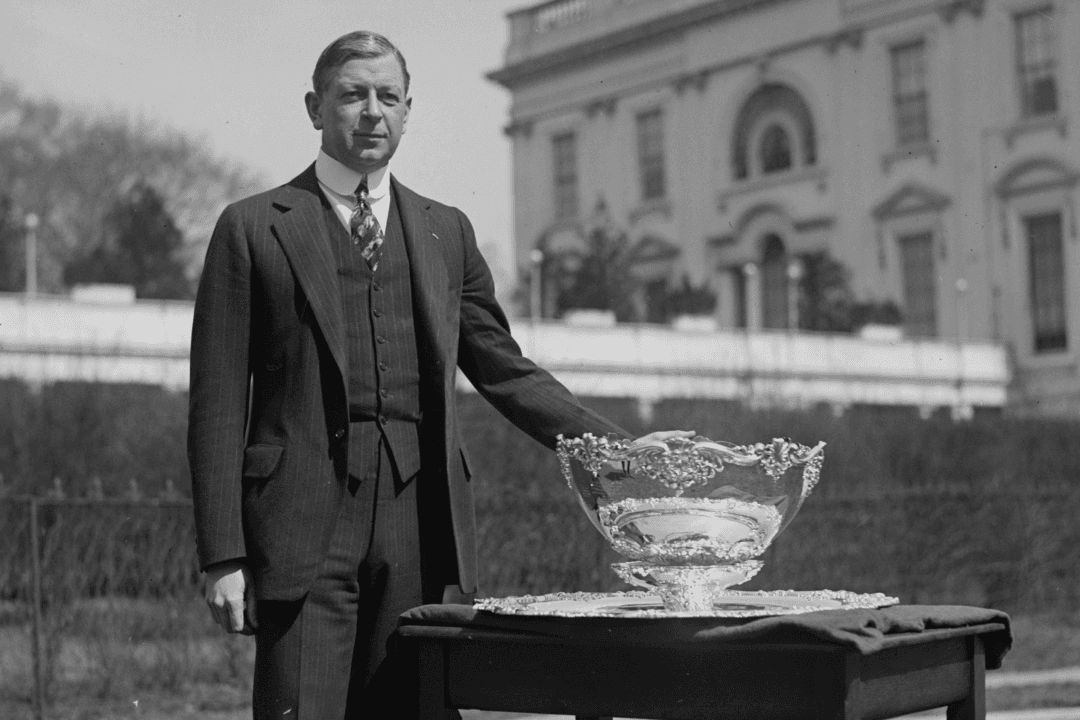Born in St. Louis, Dwight Davis (1879–1945) attended the city’s prestigious Smith Academy, which opened its doors the same year Davis was born. Smith Academy was founded as a feeder school for St. Louis’s Washington University. Davis, who excelled in his studies and in sports, chose to attend Harvard University rather than Washington, and it was a decision that would have a significant impact on the world of sports.
While attending Harvard, Davis played on the school’s tennis team. He actually did more than play—he dominated. In 1899, the left-hander claimed both the intercollegiate singles and doubles championships. He won the U.S. National Men’s Doubles Championship three straight years (1899–1901) with Holcombe Ward, one of the best tennis players of the era, who is credited with developing the twist serve. From 1898 to 1901, Davis was ranked among the country’s top 10 tennis players, reaching as high as No. 2 in 1899 and 1900.






